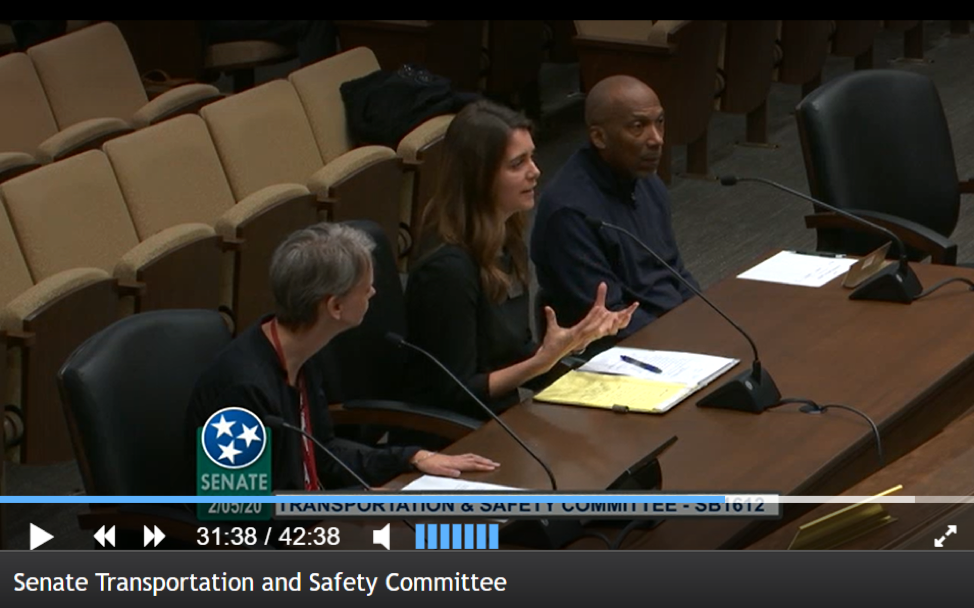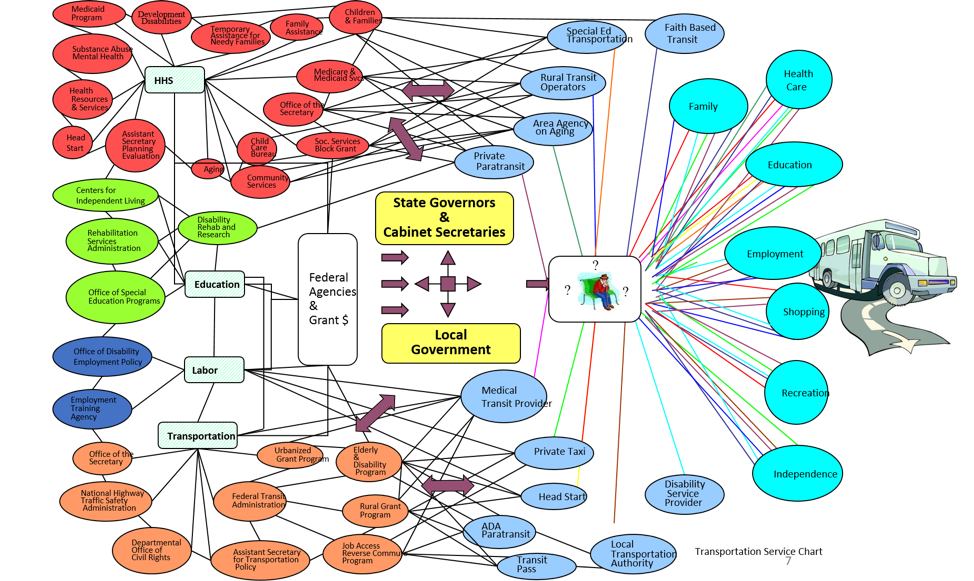Around the country, transportation remains a top barrier to inclusion for people with disabilities and people who are aging. The disability community knows all about the critical need for accessible transportation to access everyday destinations such as health care, gainful employment, social activities, faith communities. Equity depends on access to transportation. Current research confirms that significant barriers to community inclusion and employment persist because of lack of accessible transportation despite the passage of the Americans with Disabilities Act nearly 30 years ago. In communities around the country, patchworks of funding programs and resulting transportation services exist to meet the needs of people with disabilities and older adults. As shown in the graphic below, the end user has difficulty navigating this ad-hoc menu of transportation options in their community.
In the years since the United We Ride initiative and the creation of the Coordinating Council on Access and Mobility, federal, state, and local entities have sought to coordinate transportation funding and service delivery to give transportation providers the flexibility they need to serve all groups. Mobility managers have been at the forefront of these efforts in communities, dedicated to rationalizing and operationalizing coordination with transportation providers in the community. In Tennessee, this manifests in leveraging existing networks found at Human Resource Agencies in the state’s nine development districts and Tennessee’s local transit authorities. This localized structure is beneficial in that they can respond more readily to local needs. However, it also means that accessibility looks a little different depending on where you live, and it may make transportation harder to find in some communities where coordination is not taking place.
The need for statewide support of coordinated and accessible transportation was recognized by a coalition of state disability organizations after hearing many stories from constituents with disabilities about the need for better accessible transportation options. For example, because of the lack of coordination across localities a person living in Nashville, TN, reported that in order to see their doctor in the next county (less than 10 miles from where this person lives), they take their county’s accessible transportation to the county line, wait in a parking lot, and take an Uber the rest of the way to their doctor’s office.
State lawmakers saw the need for action. The chairs of the House and Senate Transportation Committees, Sen. Becky Massey, R-Knoxville, and Rep. Dan Howell, R-Cleveland worked with the TN Council on Developmental Disabilities, The Arc of Tennessee, Disability Rights Tennessee, and the Tennessee Department of Transportation to introduce and unanimously pass the Tennessee Accessible Transportation and Mobility Act of 2020 in March 2020. “Senator Massey is a known disability champion here in Tennessee. When she became the Chair of the Senate Transportation Committee, she immediately prioritized accessible transportation. Because of her leadership, this remarkable bill passed,” said Lauren Pearcy with the TN Council on Developmental Disabilities.



